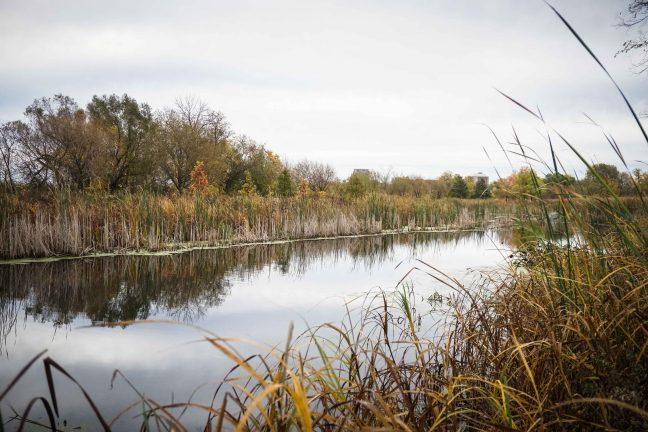Tim Michels recently floated the idea of splitting Wisconsin’s Department of Natural Resources after his comments in a gubernatorial debate. The Republican candidate drew on complaints across the state regarding the agency’s priorities — specifically regarding the needs of business representatives and hunters.
The argument for splitting the DNR is unnecessary at best. At worst, a split could cause a stalemate in Wisconsin’s environmental action and lead to a complete re-prioritization of DNR goals that puts conservation and natural resource management on the back burner.
Tim Michels’ plan emphasizes two sectors in particular: business and hunting. As two big customers competing for environmental space and resources, the DNR manages individual and industry claims over land and resources regularly.
But, today’s cohesive and singular management system balances both of these demands with respect to one another, as well as the capacity of the environment to sustain these activities. Michels would change this system to fit a segmented business model, shifting toward competition and a laissez-faire approach to environmental protection.
Mobile markets provide innovative step toward greater food security
Both the business and hunting industries come with a host of environmental issues that the DNR is responsible for regulating. In today’s rapidly industrializing and hyper-consumerist economy, which drives a business model that is in complete opposition to the goals of conservation and environmental moderation, companies are notorious for overusing environmental resources.
This battle between economic growth and environmental protection is one the DNR handles daily.
The hunting industry also works heavily with the DNR on species protection and hunting season regulations. Wisconsin in particular faces controversy with Gray Wolf hunting laws, which now prohibit the recreational hunt of wolves following the federal court ruling listing the species as officially endangered.
Deciding hunting regulations, especially regarding the creation of hunting zones, inherently must consider a variety of coexisting factors. Given the business sector’s claims over land and resources, it is crucial that the DNR be able to mitigate hunting laws in tandem with the demands of business.
Wisconsin’s DNR today does not inherently wish to demote economic or individual uses of the environment. According to the department’s mission statement, its primary goal is “protecting and managing natural resources while supporting the economy and the well-being of our citizenry.”
By removing the interconnected actions of these sectors, there is a real danger of losing this collaborative effort to both conserve and profit.
Further, a split in any agency increases the potential for inefficiency and deadlock. By creating two distinctly different mission statements serving two specific clientele, the competing claims of hunters and of Wisconsin businesses over environmental resources would lead to inevitable stalemates over who is given preference.
Dane County ballot questions chart course toward statewide referendum
There is no question that Wisconsin’s business sector relies heavily on the environment. The agriculture industry alone brings home over $104 billion dollars annually, and accounts for around 11.8% of the state’s employment.
There is also an argument to be made for the cultural and social benefits of hunting. Both sectors of the DNR’s customer base have a right to be considered in the Department’s priorities and environmental actions.
This being said, splitting the DNR implies that the success of these customers is not already a significant concern to the department. Today’s system is not a battle between environmental conservation and economic or individual health. Running a state government like a business destroys the main responsibility of a governmental agency — to balance broader issues with individual interests.
Finally, it is important to note that by introducing competing values to the department, the key mission statement of environmental protection and sustainable management is lost. This does not mean that business representatives and hunters in Wisconsin are not important customers that work with the DNR. It simply means that the environment is a third and very important piece of the DNR’s clientele.
Wisconsin’s primary environmental protection agency cannot truly fulfill its job by adopting a business model based on competition and constant, immediate growth. Hunting and business interests have to be considered by a neutral and collaborative party, as they always have been. This might indeed mean that these respective sectors end up with fewer claims over land and resources. However, this is the necessary cost of managing a common resource as expansive and essential as Wisconsin’s environment.
Fiona Hatch ([email protected]) is a sophomore studying political science and international studies.














